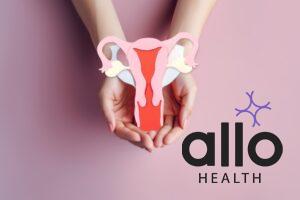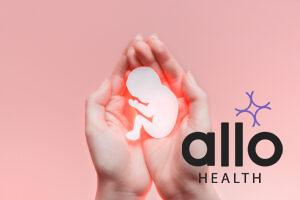When Do Periods Start After an Abortion?

Allo Health is dedicated to personalized well-being, offering support and trusted information tailored to individual health goals. The platform emphasizes human-generated content, led by a distinguished medical team of experts, including physicians and sexual health specialists. Their commitment to credibility involves rigorous fact-checking, authoritative research, and continuous updates to ensure accurate, up-to-date information. Allo Health's unique approach goes beyond conventional platforms, providing expert-led insights and a continuous commitment to excellence, with user feedback playing a crucial role in shaping the platform's authoritative voice.

Dr. Aswathi P T earned her MBBS degree and completed her internship at Government Medical College, Kozhikode, and possess diverse professional background spanning 3.5 years. Her experience includes a wide range of healthcare settings, including health centers, hospitals, and teleconsultation services.
Why This Was Upated?
Our experts continually monitor the health and wellness space, and we update our articles when new information became available.
Updated on 09 April, 2024
- Article was updated as part of our commitment to diversity, equity, and inclusion.
"The following blog article provides general information and insights on various topics. However, it is important to note that the information presented is not intended as professional advice in any specific field or area. The content of this blog is for general educational and informational purposes only.
Book consultation
The content should not be interpreted as endorsement, recommendation, or guarantee of any product, service, or information mentioned. Readers are solely responsible for the decisions and actions they take based on the information provided in this blog. It is essential to exercise individual judgment, critical thinking, and personal responsibility when applying or implementing any information or suggestions discussed in the blog."
If you have recently undergone an abortion, you may be wondering when you can expect your period to return. While every woman’s experience is unique, there are some general guidelines that can help you better understand what to expect.
The Menstrual Cycle: Understanding the Basics
- The menstrual cycle is a complex process that is controlled by hormones in the body. It typically lasts around 28 days, although it can vary from woman to woman.
- During each cycle, the lining of the uterus thickens in preparation for pregnancy. If pregnancy does not occur, this lining is shed through the vagina, resulting in a period.
- Following an abortion, your menstrual cycle may be disrupted, as your body adjusts to the hormonal changes that have taken place.
- The menstrual cycle can be affected by various factors, such as stress, weight changes, and certain medical conditions.
- Irregular periods or changes in menstrual flow can be a sign of an underlying concern and should be discussed with a healthcare professional.
- In addition, some women may experience painful periods, also known as dysmenorrhea. This can be managed with over-the-counter pain relievers, heating pads, and other self-care measures. However, if the pain is severe or interferes with daily activities, it is important to seek medical attention.
What Happens to Your Body After an Abortion?
- After an abortion, your body goes through a process of post-abortion care. This includes physical recovery and monitoring for any potential side effects or complications.
- Depending on the type of abortion that you had, you may experience bleeding, cramping, or other discomfort in the days and weeks after the procedure. This is all normal, and should gradually improve over time.
- It is important to take good care of yourself after an abortion, both physically and emotionally.
- Be sure to follow any instructions or recommendations from your healthcare provider, and seek medical attention if you experience any concerning symptoms.
- Additionally, it is common for individuals to experience a range of emotions after an abortion. It is important to give yourself time and space to process these feelings, and to seek support from loved ones or a mental health professional if needed. Remember that everyone’s experience is unique, and there is no right or wrong way to feel.

The Relationship Between Abortion and Menstruation
Abortion can affect your menstrual cycle in different ways, depending on various factors. Some of the most common effects include:
- Delayed return of periods
- Irregular menstrual cycles
- Heavier or lighter periods
- Changes in PMS symptoms
- Abdominal cramps
It is important to remember that everyone’s experience is different, and that there is no “normal” when it comes to post-abortion periods. However, there are some factors that can influence when your period returns and what it looks like.
One factor that can affect your menstrual cycle after an abortion is the type of abortion procedure you had.
- A surgical abortion, which involves the removal of the fetus through the cervix, can cause more physical trauma to the uterus than a medication abortion, which involves taking pills to induce a miscarriage. This trauma can lead to a longer recovery time and delayed return of periods.
- Another factor that can impact your menstrual cycle after an abortion is your overall health and well-being. Stress, poor nutrition, and lack of sleep can all contribute to irregular periods and changes in menstrual flow.
It is important to take care of yourself both physically and emotionally after an abortion to help support your body’s natural healing process.
Factors That Affect the Return of Periods After Abortion
There are several factors that can impact when your period will return after an abortion. Some of the most significant include:
- Type of abortion
- Age
- Overall health and wellness
- Hormonal imbalances
If you have any concerns about your menstrual cycle after an abortion, be sure to talk to your healthcare provider. They can provide personalized guidance and support to help you understand what to expect.
Certain factors that can affect the return of periods are the type of procedure and the use of hormonal birth control. For example, a surgical abortion may cause more trauma to the uterus than a medication abortion, which can impact the timing of your menstrual cycle.
On the other hand, if you start using hormonal birth control after an abortion, it can take some time for your body to adjust and for your menstrual cycle to return to its normal pattern.
How Long Will It Take for Your Periods to Return?
- Most women can expect their periods to return within 4-6 weeks after an abortion.
- However, this can vary depending on various factors. Some women may experience delayed periods, while others may have irregular cycles or experience changes in their menstrual flow or symptoms.
- If you are concerned about the length of time it is taking for your periods to return, be sure to talk to your healthcare provider. They can help you understand what to expect and provide guidance on any potential underlying issues or concerns.
- The type of abortion procedure you had may also affect the timing of your period’s return. Women who had a surgical abortion may experience a longer delay in the return of their periods compared to those who had a medication abortion. This is because the surgical procedure can cause more trauma to the uterus, which may take longer to heal.

Differences Between Medical and Surgical Abortions and Their Effects on Menstruation
The type of abortion that you have can also impact your menstrual cycle.
- Medical abortions, which use medication to end a pregnancy, may cause more significant changes to your cycle than surgical abortions. This is because medical abortions typically involve more significant hormonal changes, which can take longer for the body to adjust to.
- However, every woman’s experience is different, and it is possible to experience changes in your menstrual cycle with either type of abortion.
- Changes in menstrual cycles after an abortion are usually temporary and should return to normal within a few months. However, if you experience any unusual symptoms or prolonged changes in your cycle, it is important to consult with your healthcare provider.
- Additionally, it is important to consider the emotional and psychological effects of abortion on women. It is common for women to experience a range of emotions after an abortion, including sadness, guilt, and relief. It is important to seek support from loved ones or a mental health professional if you are struggling with these emotions.
Warning Signs to Look Out for After an Abortion Procedure
While post-abortion complications are rare, it is important to be aware of the warning signs and seek medical attention if you experience any concerning symptoms. Some potential signs of complications after an abortion include:
- Heavy bleeding that soaks through one or more pads per hour
- Severe or persistent cramping or pain
- Fever or chills
- Unusual discharge or odor
- Persistent nausea or vomiting
If you experience any of these symptoms, be sure to seek medical attention right away. Your healthcare provider can help identify any potential issues and provide appropriate care and treatment as needed.
Emotional and psychological symptoms can occur after an abortion. Some women may experience feelings of sadness, guilt, or regret. It is important to seek support from a mental health professional or a support group if you are struggling with these emotions.
It is also important to take care of yourself physically after an abortion. This includes getting plenty of rest, eating a healthy diet, and avoiding strenuous activities for a few days, a healthy lifestyle in general. Your healthcare provider can provide specific instructions on how to care for yourself after the procedure.

The Bottom Line
Overall, while it can be difficult to predict exactly when your period will return after an abortion, it is important to take good care of yourself and seek medical attention as needed. By understanding the basics of the menstrual cycle and the factors that can impact your periods after an abortion, you can better prepare and support yourself as your body heals and adjusts.
Every person’s experience with abortion and post-abortion periods is unique. Some individuals may experience irregular periods or changes in their menstrual cycle for several months after an abortion, while others may have a relatively normal cycle. It is important to listen to your body and communicate any concerns or changes with your healthcare provider.
Frequently Asked Questions
Q: When will my period return after an abortion?
A: Your period may return within 4-6 weeks after an abortion, although it can take longer in some cases.
Q: Will my period be different after an abortion?
A: It is possible that your period may be different after an abortion, due to hormonal changes or other factors. Some women experience heavier or lighter periods, or experience changes in PMS symptoms.
Q: Is it normal to have cramping or bleeding after an abortion?
A: Yes, it is normal to experience some cramping and bleeding after an abortion, as your body heals and adjusts. However, it is important to monitor your symptoms and seek medical attention if you experience any concerning side effects or complications.
Q: Can an abortion affect future fertility?
A: While most abortions do not affect future fertility, there is a small risk of complications that can lead to infertility. It is important to discuss any concerns about future fertility with your healthcare provider before undergoing an abortion.
Q: Is it normal to see blood clots after abortion?
A: Yes, it can be normal to observe blood clots after an abortion, as they are a common part of the body’s natural response to the procedure. However, if you experience excessive bleeding or severe pain, it’s essential to seek medical attention.
Q: When should i be concerned regarding post-abortion periods?
A: You should be concerned about post-abortion periods if you experience heavy bleeding that soaks through more than one pad per hour for several hours in a row or if you have severe abdominal pain or pelvic pain that doesn’t improve with pain relief medication. In such cases, it’s crucial to consult a healthcare professional promptly.






































